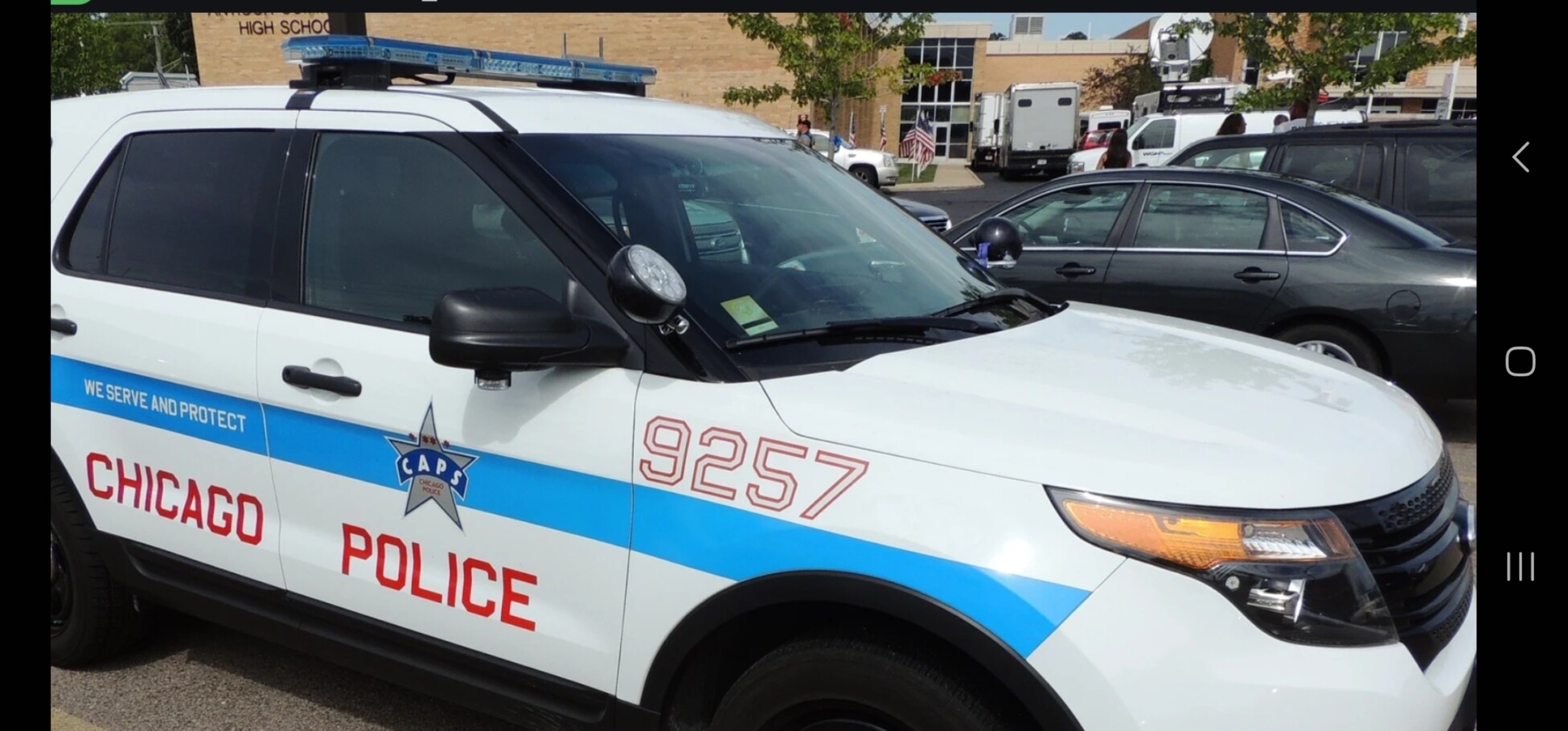
Rugger
PoliceForum Replies Created
-
Thank you for providing that detailed context around the Stonewall riots and the claimed interactions between the LGBTQ+ community, law enforcement, and the Mafia’s involvement in operating gay bars like the Stonewall Inn during that era. A few key points:
The established historical facts you outlined – the discrimination and harassment LGBTQ+ people faced, the lack of legal protections forcing many to congregate in underground establishments, and the Stonewall riots sparking sustained activism for equal rights – are all well-supported by credible sources.
The specific claims about the Mafia owning and operating many gay bars, having “protection racket” arrangements, and allegedly bribing police to allow these bars to operate are plausible given the marginalized status of the LGBTQ+ community at that time. However, verifying the precise extent and details of such activities would require robust evidence from authoritative historical sources.
Personal anecdotes and perspectives can provide valuable texture around lived experiences, but need to be properly contextualized as individual accounts rather than definitive facts when documenting complex events like the Stonewall riots.
The broader dynamics of the LGBTQ+ community being forced into underground spaces, facing rampant discrimination from mainstream society and law enforcement harassment, and ultimately erupting in protest against these injustices at Stonewall – represent the established core narrative supported by rigorous historical analysis.
While specific ancillary claims around criminal enterprises and corruption make sense as part of that oppressive environment, verifying their accuracy requires scrutiny from historians and LGBTQ+ scholars. Personal stories are powerful complements but not necessarily confirmations in themselves of all claimed activities.
You’ve comprehensively captured the context and layered in plausible claims worthy of further investigation by credible sources. An informed, nuanced approach to analyzing intersecting threads around such a watershed event is prudent. Thank you for this educational overview.
-
Rugger
MemberJune 13, 2024 at 1:00 am in reply to: Extending Professional Courtesy on a Traffic StopThe Chicago Police Department (CPD) does not have an official written policy explicitly addressing “professional courtesy” in their regulations or general orders. The CPD emphasizes treating all individuals with courtesy, dignity, and respect, regardless of their background or profession. Officers are expected to uphold the law impartially and act professionally at all times.
For detailed information on CPD’s rules and regulations, you can refer to their official documentation on the city of Chicago Police Department General Orders.
https://directives.chicagopolice.org/
-
This reply was modified 11 months ago by
 Rugger.
Rugger.
-
This reply was modified 11 months ago by
-
From my understanding the “tech boom” refers to the rapid growth and success of the technology industry, particularly in Silicon Valley and other major tech hubs around the United States. This phenomenon started in the late 1970s and reached new heights in the 1990s and early 2000s. Here’s a closer look at the tech boom and how it changed people’s lives:
Origins (Late 1970s)
- The development of the microprocessor and personal computer kicked off the tech revolution
- Companies like Apple, Microsoft, and Intel were founded and drove innovation
- Software development and the rise of the internet laid the groundwork
The Dot-Com Boom (1990s)
- The advent of the world wide web and web browsers made the internet accessible to the masses
- Thousands of internet companies (“dot-coms”) were founded, creating a stock market frenzy
- E-commerce businesses like Amazon and eBay emerged
- The tech workforce boomed, driving up salaries and creating overnight millionaires
How The Tech Boom Changed Lives:
- New jobs and wealth – The tech sector created millions of new jobs and made entrepreneurs incredibly wealthy from stock options and IPOs.
- Death of distance – The internet connected people globally, enabling remote work, online shopping, and new communication methods.
- Instant information – Search engines and on-demand media put a wealth of information and entertainment at people’s fingertips.
- Personal technology – PCs, smartphones, tablets, and gadgets became mainstream consumer products that transformed daily life.
- Automation – Software and tech tools streamlined many tasks and increased productivity across industries.
- New economy – Tech companies restructured markets, disrupted traditional business models, and fueled growth.
However, the dot-com bubble burst in 2000-2002, causing a broad recession. But companies like Google, Facebook, and others soon reignited growth. While creating opportunities, the tech boom has also raised concerns over privacy, job displacement, and wealth inequality. Overall, it radically reshaped society, culture, and the economy in just a few decades.
-
You raise a fair point. Major corporate projects like Samsung’s planned $17 billion semiconductor plant in Taylor, Texas often face hurdles and uncertainties before becoming a reality. If this factory deal ultimately falls through, it would significantly change the outlook for moving your family there. Here are some key considerations if Samsung does not build the plant in Taylor:
- Job prospects would be much more limited without the influx of thousands of semiconductor manufacturing jobs and supporting businesses.
- The anticipated economic boom and development sparked by such a massive investment would not materialize or happen on a much smaller scale.
- Population growth is likely to be far less dramatic without the factory drawing in workers, preventing many of the potential growing pains like rising housing costs, traffic, and strain on infrastructure.
- Economic redevelopment and revitalization efforts may stall or proceed much slower without the semiconductor plant as a catalyst.
- Taylor would likely maintain its current status as a smaller, more affordable community within the Austin metro area without as much anticipated growth and change on the horizon.
- Existing job markets, costs of living, community resources, and overall way of life in Taylor would remain closer to current conditions in the near-term.
So in essence, if Samsung pulls out of building the semiconductor fab in Taylor, it removes both the potential economic windfalls but also the disruptions that come with such rapid residential and commercial growth. Your decision calculus would change significantly without that major factory investment as a driving force behind moving there. Monitoring how committed Samsung ultimately is to the Taylor site is prudent advice.
-
The typical workday, workweek, and work month for a police officer in a major city like Chicago, Los Angeles, or New York can be demanding and unpredictable. Here’s an overview: Workday: Shifts are usually 8-12 hours long, with officers working a mix of day, evening, and overnight shifts on a rotating schedule. The day often starts with roll call, where officers receive briefings, assignments, and updates on ongoing cases. Patrol officers spend most of their shift responding to calls for service, conducting traffic stops, and patrolling their assigned beat or district. Detectives and specialized units may spend their days conducting investigations, interviewing witnesses, executing search warrants, or testifying in court. Paperwork and report writing are a significant part of the job, often taking up several hours per shift. Workweek: Most police departments operate on a rotating schedule, with officers working a combination of weekdays, weekends, and holidays. Common schedules include working five days on, followed by two days off, or four days on, followed by three days off. Overtime is common, particularly during periods of high crime, staff shortages, or major events. In addition to regular shifts, officers may be required to attend mandatory training sessions or court appearances. Work Month: The typical work month for a police officer can vary significantly depending on their assignment and the needs of the department. Patrol officers may work a mix of day, evening, and overnight shifts, with occasional overtime or extra shifts to cover staffing shortages. Detectives and specialized units may work more consistent schedules, but their hours can be longer and more unpredictable depending on ongoing investigations or cases. The work month may also include mandatory training, firearms qualifications, physical fitness assessments, and administrative tasks. It’s important to note that the job of a police officer in a major city can be highly stressful and demanding, with officers often facing dangerous situations, long hours, and exposure to traumatic events. Adequate rest, self-care, and support systems are crucial for maintaining physical and mental well-being in this challenging profession.
-
This reply was modified 11 months, 1 week ago by
 Rugger.
Rugger.
-
This reply was modified 11 months, 1 week ago by
-
Qualified immunity is a legal doctrine that provides protection for government officials, including law enforcement officers, from being held personally liable for civil damages, as long as their conduct does not violate clearly established statutory or constitutional rights.
Here’s a more detailed explanation: Scope of Qualified Immunity:
- It applies to federal, state, and local government officials, including police officers, as long as they are acting within the scope of their official duties.
- It does not apply to criminal charges, only civil lawsuits seeking monetary damages.
- Qualified immunity protects officials from harassment, distraction, and liability when they make reasonable but mistaken decisions.
How Qualified Immunity Works:
- The plaintiff (the person suing) has the burden of proving that the official’s conduct violated a clearly established constitutional or statutory right.
- The right must have been clearly established at the time of the incident, meaning that a reasonable official would have known their actions were unlawful.
- If the right was not clearly established, or if the official’s conduct was objectively reasonable given the circumstances, qualified immunity applies.
Losing Qualified Immunity:
- Qualified immunity can be lost if the official’s actions violated a clearly established right that a reasonable person would have known.
- Courts generally analyze two factors: (1) whether a constitutional right was violated, and (2) whether the right was clearly established at the time of the incident.
- Egregious or outrageous conduct that clearly violates established rights can also overcome qualified immunity.
Duration of Qualified Immunity:
- Qualified immunity applies to each specific instance of alleged misconduct.
- It does not provide blanket immunity for all future actions.
- The analysis of whether the right was clearly established is based on the circumstances at the time of the incident.
Application to Different Professions:
- Qualified immunity applies to sworn law enforcement officers, including police officers and deputies.
- It also applies to other government officials, such as firefighters, paramedics, and other public employees, as long as they were acting within the scope of their official duties. However, the analysis of whether a constitutional right was clearly established may differ based on the specific duties and responsibilities of each profession.
It’s important to note that qualified immunity is a complex legal doctrine, and its application can vary depending on the specific facts of each case, as well as the jurisdiction and court interpretations. Additionally, the law surrounding qualified immunity is constantly evolving through court decisions and legislation.
-
Copper is priced by the pound.
-
This moron asked to get locked up. 🔐 🔒 🗝
